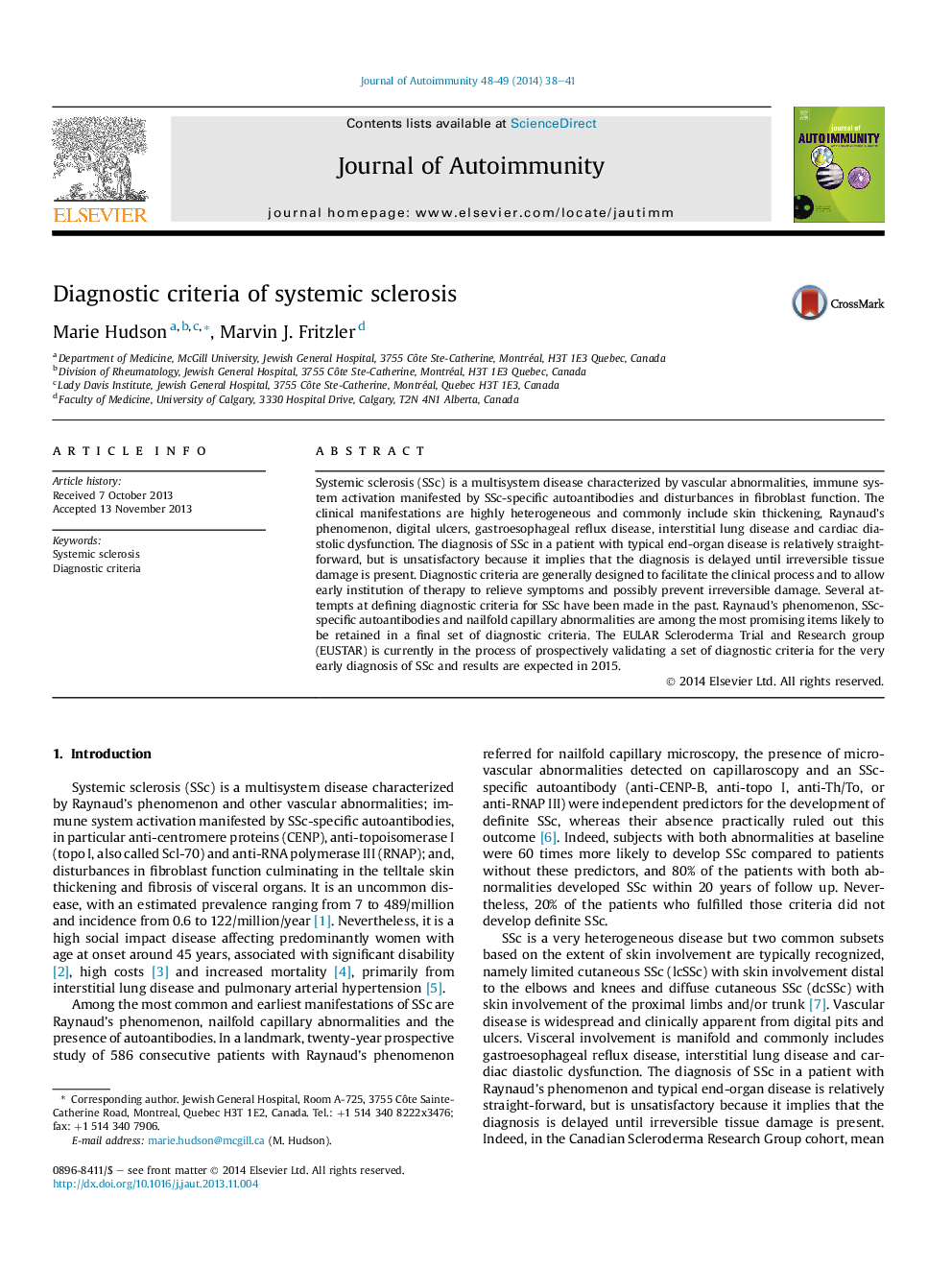| Article ID | Journal | Published Year | Pages | File Type |
|---|---|---|---|---|
| 3367832 | Journal of Autoimmunity | 2014 | 4 Pages |
Systemic sclerosis (SSc) is a multisystem disease characterized by vascular abnormalities, immune system activation manifested by SSc-specific autoantibodies and disturbances in fibroblast function. The clinical manifestations are highly heterogeneous and commonly include skin thickening, Raynaud's phenomenon, digital ulcers, gastroesophageal reflux disease, interstitial lung disease and cardiac diastolic dysfunction. The diagnosis of SSc in a patient with typical end-organ disease is relatively straight-forward, but is unsatisfactory because it implies that the diagnosis is delayed until irreversible tissue damage is present. Diagnostic criteria are generally designed to facilitate the clinical process and to allow early institution of therapy to relieve symptoms and possibly prevent irreversible damage. Several attempts at defining diagnostic criteria for SSc have been made in the past. Raynaud's phenomenon, SSc-specific autoantibodies and nailfold capillary abnormalities are among the most promising items likely to be retained in a final set of diagnostic criteria. The EULAR Scleroderma Trial and Research group (EUSTAR) is currently in the process of prospectively validating a set of diagnostic criteria for the very early diagnosis of SSc and results are expected in 2015.
